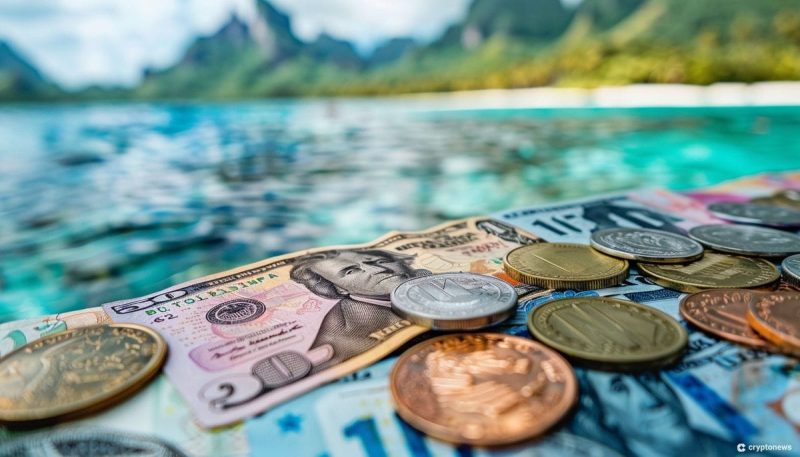
IMF Proposes Digital Money to Enhance Financial Inclusion in Pacific Island Nations
The International Monetary Fund (IMF) has suggested that digital money could significantly improve financial inclusion and enhance the quality of financial services in the remote and dispersed nations of the Pacific Ocean.
In a report published on March 25, the IMF’s senior economic experts examined the potential impact of both private stablecoins and central bank digital currencies (CBDCs) on the economies of Pacific Islands countries.
The report noted the that nations have limited and unequal access to financial services, which contributes to persistent poverty and inequality.
Moreover, these countries heavily rely on remittance flows, making them particularly vulnerable to the diminishing correspondent banking relationships.
Digital Money Could Help Pacific Island Nations
To address these issues, the IMF believes that embracing the digital money revolution could unlock several benefits for the Pacific Island nations.
By developing robust payment systems, expanding financial inclusion, and mitigating the loss of correspondent banking relationships, these nations can pave the way for economic growth and stability.
While the report predominantly focuses on CBDCs, a cause strongly advocated by the IMF, it also acknowledges the potential of private stablecoins backed by foreign currencies.
The IMF advises against smaller Pacific Island countries issuing their own sovereign stablecoins due to limited oversight capacities.
However, the report specifically mentions Tether as a private stablecoin.
IMF urges careful design, slow introduction for Pacific Island digital currencies
The island nations have common challenges and widely varying conditions. Just don’t use crypto, the IMF says.
— Mr Legend Crypto (@mrlegendcrypto) February 28, 2024
For Pacific Island countries with existing national currencies and mature banking systems, the IMF suggests a two-tier CBDC model, where the central bank issues the digital currency but delegates its operation to private intermediaries.
As for countries without their own currencies, the report suggests that foreign currency-based stablecoins could be a viable alternative, but with stringent regulation and supervision in place.
Currently, none of the Pacific Island countries officially utilize private cryptocurrencies or stablecoins, with only a few, such as Fiji, Palau, Solomon Islands, and Vanuatu, exploring the concept of CBDCs.
IMF Continues to Advocate for CBDCs
The IMF remains at the forefront of international advocacy for the implementation of CBDCs.
Its managing director, Kristalina Georgieva, has emphasized the potential of CBDCs to replace cash and coexist with private money, serving as a safe and cost-effective alternative.
According to the Atlantic Council CBDC tracker, 130 countries, representing 98% of global GDP, are currently exploring a CBDC, while 19 of the G20 countries are in the advanced stage of their CBDC development.
In total, 11 countries have fully launched a CBDC, which include China, The Bahamas, Nigeria, Anguilla, Jamaica, and seven Eastern Caribbean countries.
It is worth noting that the United States is among the few countries that have no confirmed plans to launch a digital currency.
However, the country has been still moving forward on a wholesale (bank-to-bank) CBDC.
Moreover, some lawmakers in the US have staunchly opposed a CBDC due to privacy concerns.
Florida Governor Ron DeSantis, and now Republican presidential candidate, signed a bill last year, banning CBDCs.
“The movement to establish a central bank digital currency is an attempt to surveil & control the finances of Americans. It would violate privacy, limit consumer choice & undermine market competitiveness,” DeSantis said at the time.
The post IMF Proposes Digital Money to Enhance Financial Inclusion in Pacific Island Nations appeared first on Cryptonews.
